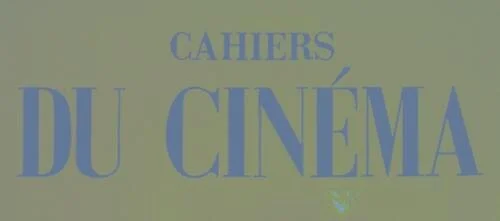The Murky Future of Cahiers du cinéma
Ever since the early ‘50s, French magazine extraordinaire Cahiers du cinéma has lead the way with how it presents film journalism. Having picked up a number of critics and writers that vowed to push cinema beyond its foreseeable limits, Cahiers du cinéma is notable for a number of achievements. These include the spotlighting of certain filmmakers for the world to take notice of in a new light (Hollywood works can be art?), the extra oomph and unpredictability that the arts journalism world needed (detailing film in a new way, whilst insisting that films like Lady in the Water are best-of-the-year material), and more. It also housed a number of French New Wave’s greatest auteurs, including Jean-Luc Godard, François Truffaut, and Jacques Rivette, amongst others. Seeing as France was a major spawning point for the birth of cinema as we know it (the Lumière brothers, Georges Méliès), and a country with a constant presence in the medium ever since, it only seemed fair that dedicated cinephiles from one of cinema’s greatest nations would be such an integral force to presenting its future.
Nearly seventy years later, it is still going. Cahiers du cinéma has obviously been affected by the transition to the digital world, and has been fighting to make money for a number of years. What it never lost was its dedicated staff, who upheld the magazine’s prestigious output and signature style since the start. With the obsession of best-of lists online now, Cahiers was receiving a new audience that was getting around to this side of film criticism. Recently, an online debate on whether or not Twin Peaks: The Return constituted as an eighteen hour long film or a miniseries, because Cahiers was one of the few publications to honour it as film of the year. That same debate happened once more when it crowned the David Lynch effort the best film of the 2010’s.
It is now 2020, and Cahiers du cinéma is facing a very different future. Despite coming close to breaking even for the first time in ages, the magazine was sold by previous owner Richard Schlagman: a wealthy entrepreneur. The lucky recipients were twenty-something French business people, who have ties to various film studios and other major corporations; these include Xavier Neil and Grégoire Chertok. Right off the bat, this doesn’t look too good. Whenever a voice of that who is being critiqued becomes an owner of a community’s voice, you can expect specific influences to take place. How can Cahiers rag on a film made by a studio owned by one of Cahiers’ new owners? How can they do this to any of the multiple studios?
That’s precisely why the writing staff walked out (I’ve seen reports that either most or all of the writing staff left) in one swift motion. This resignation parade was heavily reported on when it happened late February, because that may have been the second major red flag surrounding one of film’s most beloved publications (after the purchase, of course). The future was already looking uncertain. Now, I don’t even need to detail this heavily (I’m sure), but there is the coronavirus that has put everything on Earth in a standstill. The publication itself may very well take a hit, and the films the magazine was due to profile are on hiatus. The entire film industry is in a very weird place, and this major Cahiers du cinéma transition couldn’t have happened at a worse time.
I absolutely cannot blame the writing staff for leaving. I’ve seen far too many publications I have adored get butchered by one sleaze bag purchase. The entire voice of a journal shifts once big time money is involved: because what you say about this particular artist, because we have business ties to their studio or label. This sucks for them as well. What are these people going to do now, if they haven’t already picked up new work in the span of a week or so? Keep in mind this huge wave of the COVID-19 societal meltdown happened within March. Finding work in 2020 is difficult, even if you’re a Cahiers du cinéma alum (journalism is suffering at large).
All I know is one of the greatest magazines in the history of the printed medium is in shaking hands. We obviously have many sources for film criticism (hence why I made my own with Films Fatale, as I wanted to be apart of the circle I have loved for years), but Cahiers du cinéma is arguably the most pivotal magazine in film history; it was strong enough to actually change multiple aspects of the industry. We could very well be seeing it die before us this year; many publications and pundits have written off Cahiers ever since the big February sale already, but we may see it wither away in other ways. For the first time since it started, the future of the film magazine that changed the future seems desperate and alarming.
Andreas Babiolakis has a Masters degree in Film and Photography Preservation and Collections management from Ryerson University, as well as a Bachelors degree in Cinema Studies from York University. His favourite times of year are the Criterion Collection flash sales and the annual Toronto International Film Festival.


